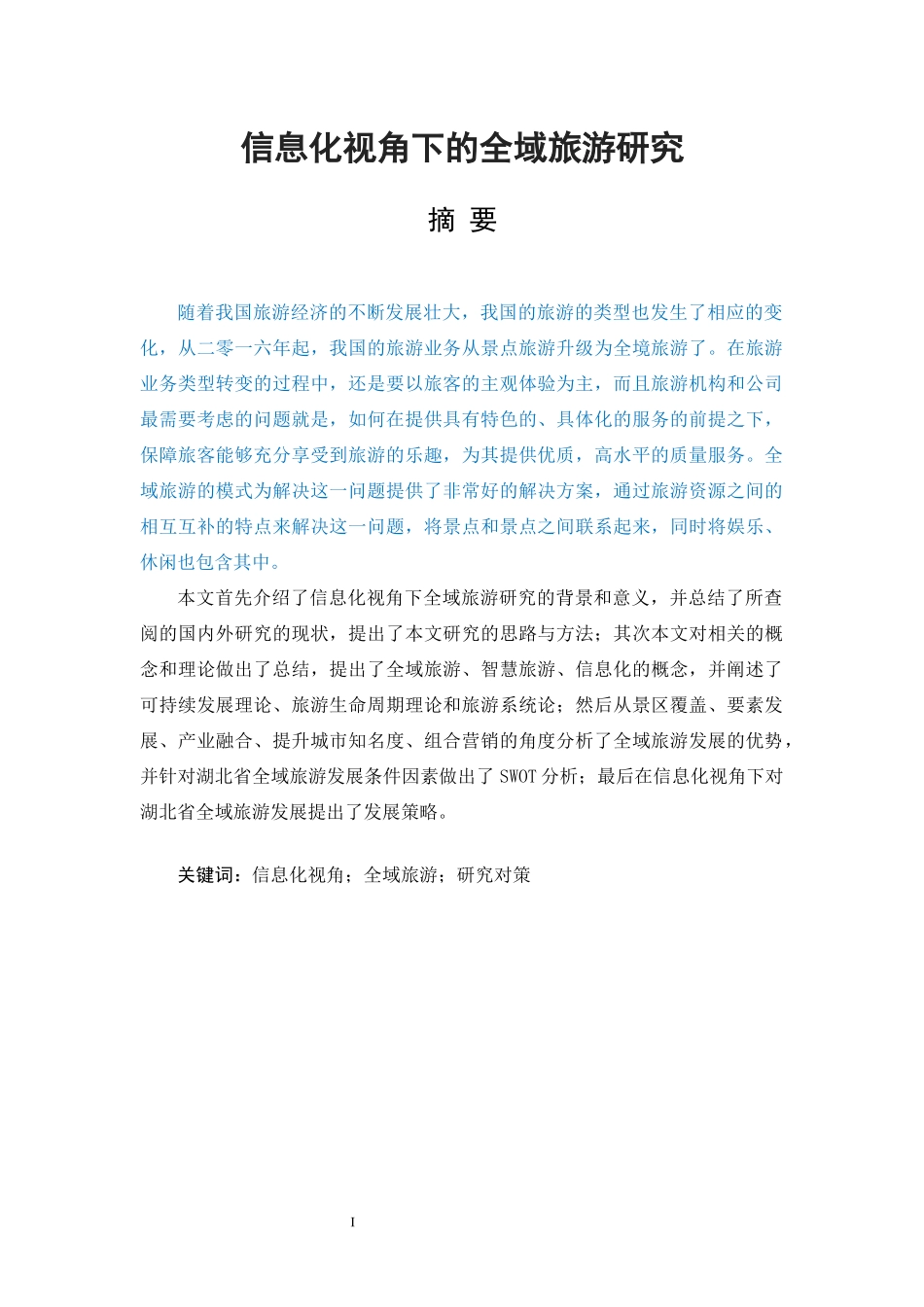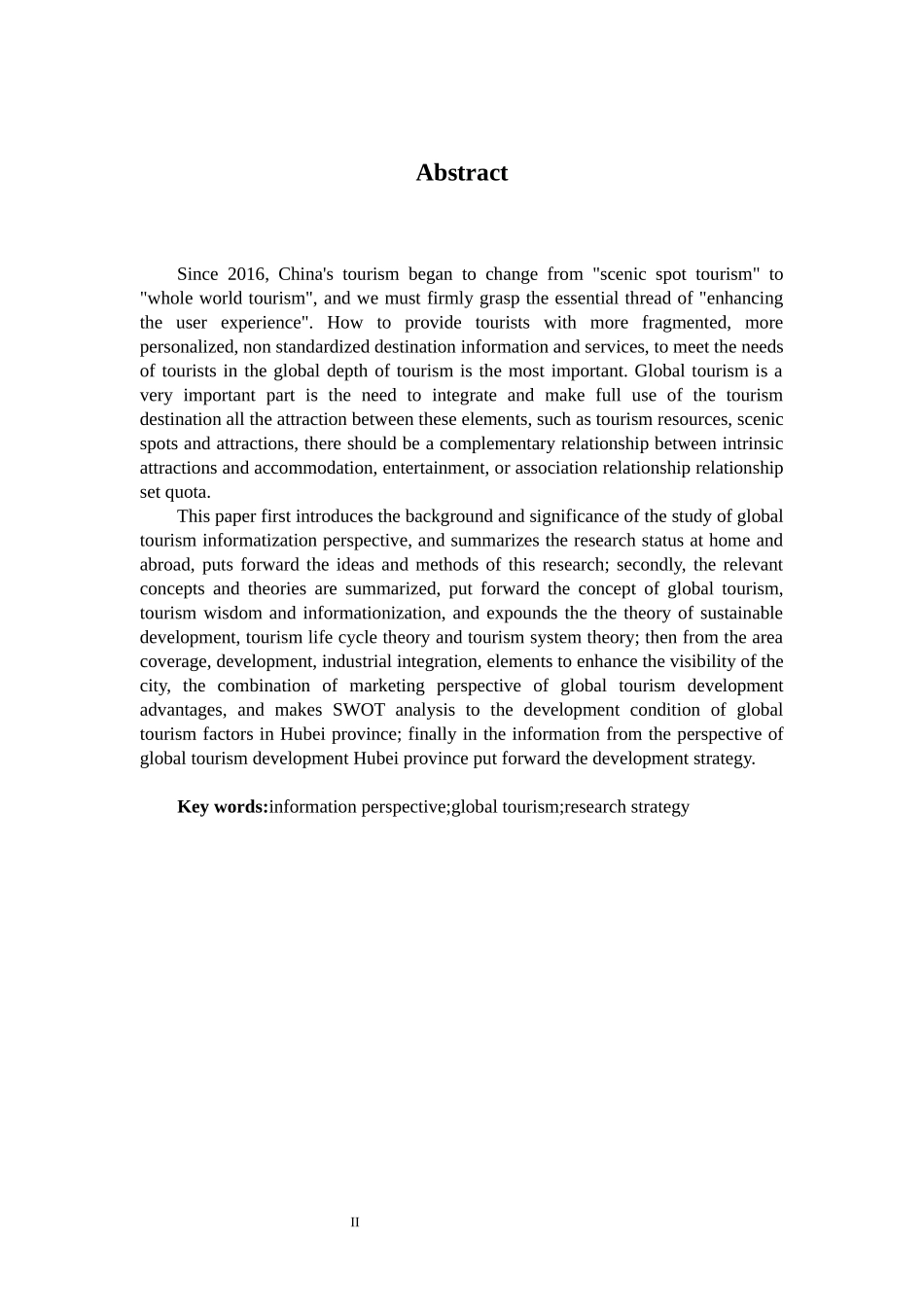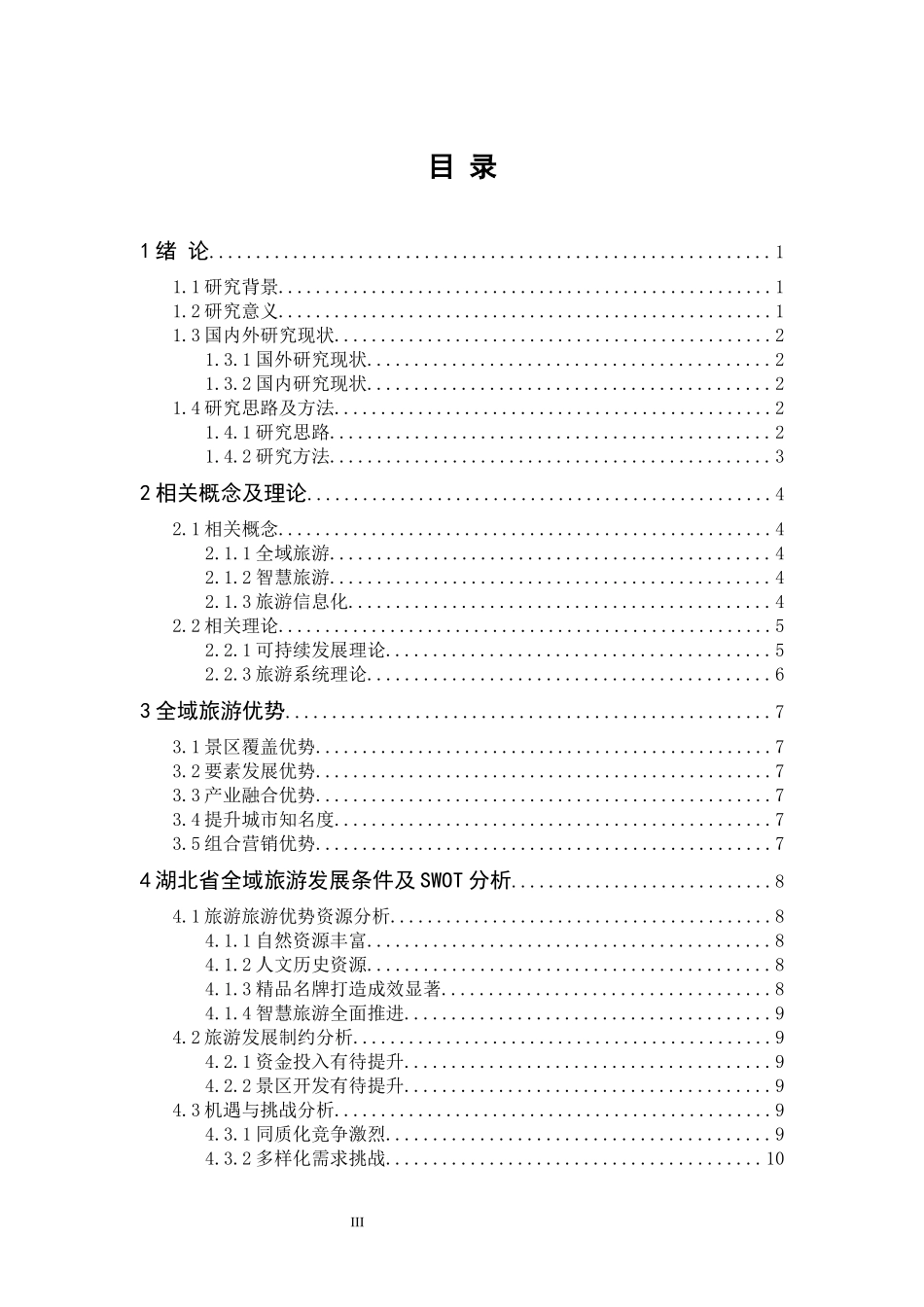I信息化视角下的全域旅游研究摘 要随着我国旅游经济的不断发展壮大,我国的旅游的类型也发生了相应的变化,从二零一六年起,我国的旅游业务从景点旅游升级为全境旅游了。在旅游业务类型转变的过程中,还是要以旅客的主观体验为主,而且旅游机构和公司最需要考虑的问题就是,如何在提供具有特色的、具体化的服务的前提之下,保障旅客能够充分享受到旅游的乐趣,为其提供优质,高水平的质量服务。全域旅游的模式为解决这一问题提供了非常好的解决方案,通过旅游资源之间的相互互补的特点来解决这一问题,将景点和景点之间联系起来,同时将娱乐、休闲也包含其中。本文首先介绍了信息化视角下全域旅游研究的背景和意义,并总结了所查阅的国内外研究的现状,提出了本文研究的思路与方法;其次本文对相关的概念和理论做出了总结,提出了全域旅游、智慧旅游、信息化的概念,并阐述了可持续发展理论、旅游生命周期理论和旅游系统论;然后从景区覆盖、要素发展、产业融合、提升城市知名度、组合营销的角度分析了全域旅游发展的优势,并针对湖北省全域旅游发展条件因素做出了 SWOT 分析;最后在信息化视角下对湖北省全域旅游发展提出了发展策略。关键词:信息化视角;全域旅游;研究对策IIIAbstractSince 2016, China's tourism began to change from "scenic spot tourism" to "whole world tourism", and we must firmly grasp the essential thread of "enhancing the user experience". How to provide tourists with more fragmented, more personalized, non standardized destination information and services, to meet the needs of tourists in the global depth of tourism is the most important. Global tourism is a very important part is the need to integrate and make full use of the tourism destination all the attraction between these elements, such as tourism resources, scenic spots and attractions, there should be a complementary relationship between intrinsic attractions and accommodation, entertainment, or association relationship relationship set quota. This paper first introduces the background and significance of the study of global tourism informatizati...


